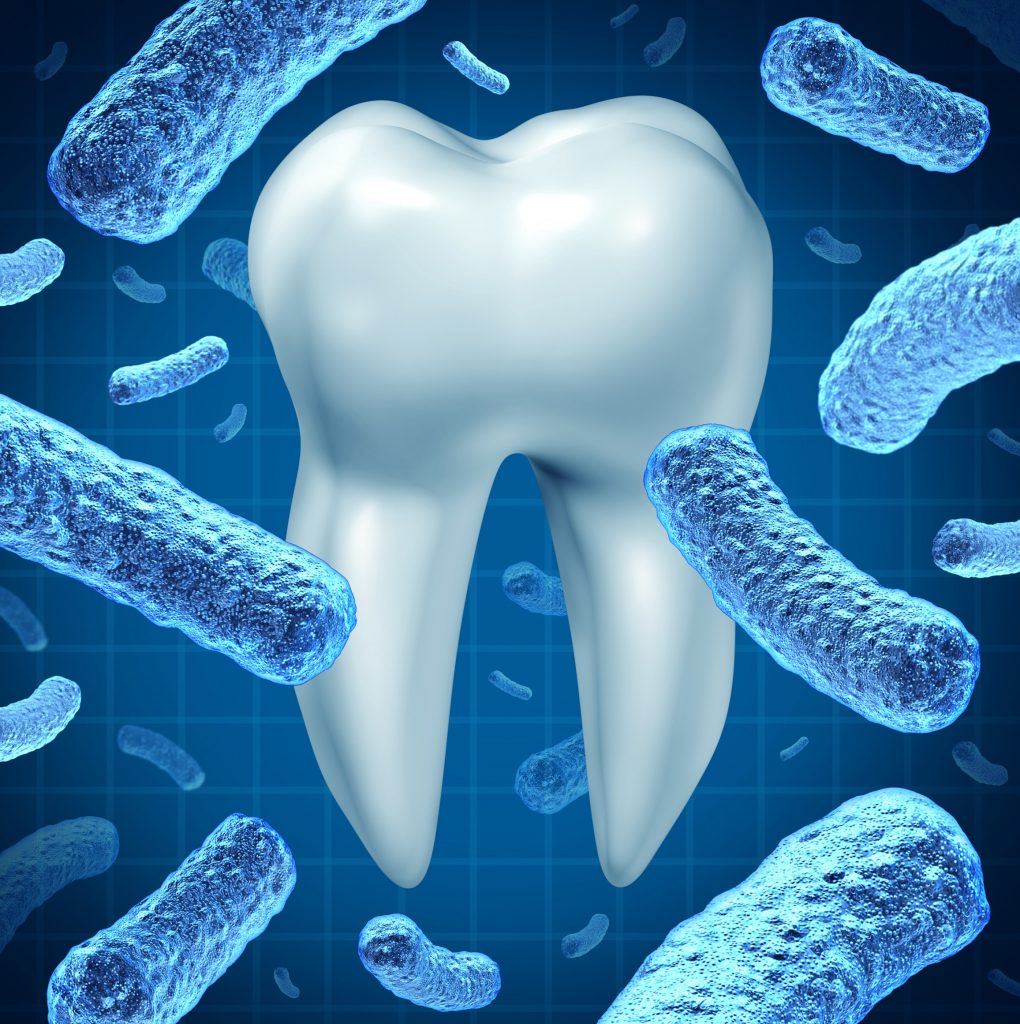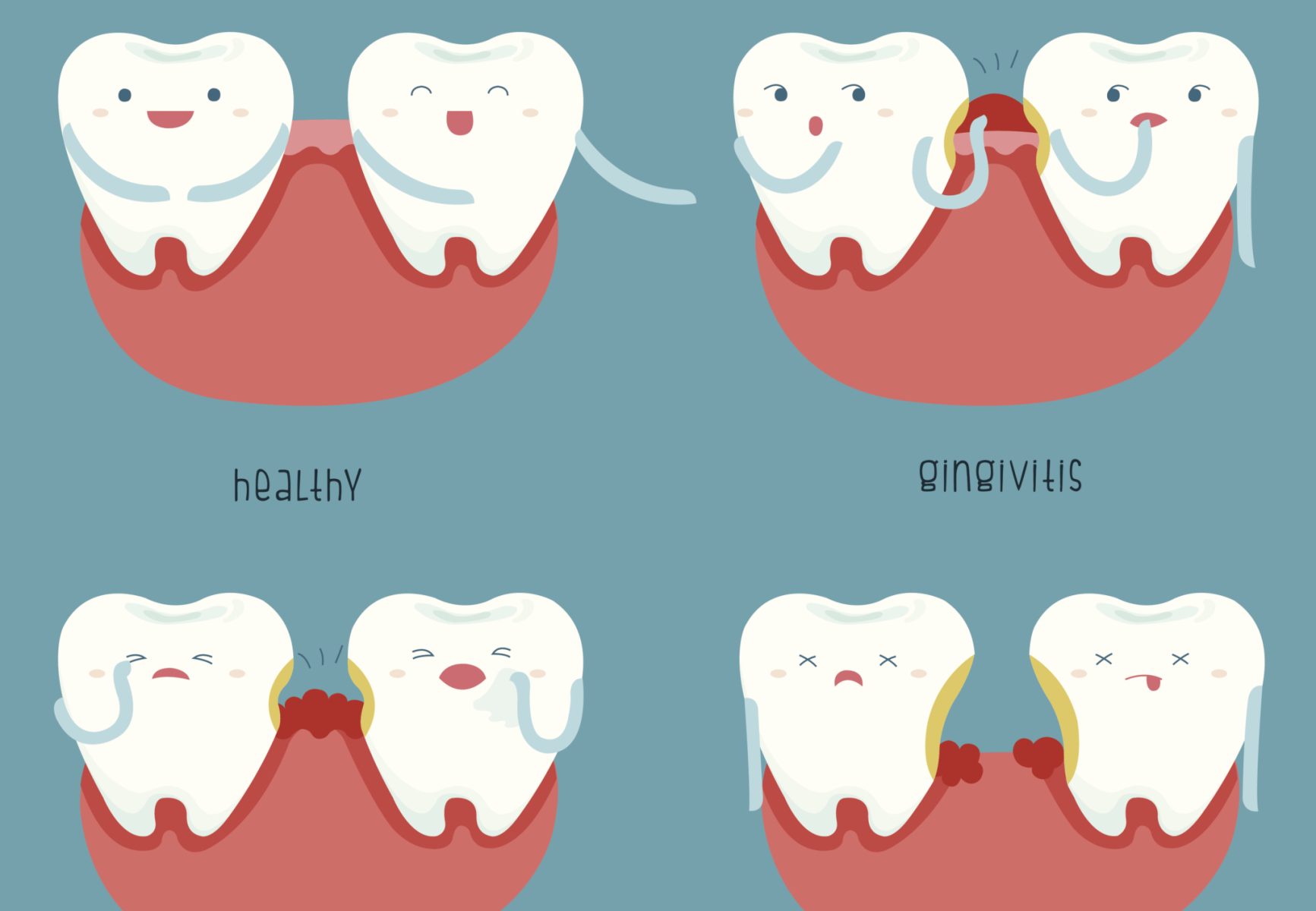If you’re seeking a way to restore both the health and beauty of your smile, periodontal plastic surgery could be the solution you need. At Perio Implant Chicago, Drs. Peter Cabrera and Bahareh Sabzehei offer a range of advanced periodontal treatments designed to enhance your smile while improving your gum health.
Continue reading “A Guide To Periodontal Plastic Surgery | Chicago Dentist”Understanding Regenerative Dental Procedures | Chicago Dentist
At Perio Implant Chicago, Drs. Peter Cabrera and Bahareh Sabzehei are dedicated to providing comprehensive periodontal care, including advanced regenerative procedures to address gum, bone, and tissue damage. Whether due to periodontal disease, birth defects, or trauma, these procedures play a vital role in restoring oral health and functionality.
Continue reading “Understanding Regenerative Dental Procedures | Chicago Dentist”Periodontal Specialists | Chicago Dentist
At Perio Implant Chicago, Drs. Peter O. Cabrera and Bahareh Sabzehei blend their extensive expertise with cutting-edge technology to provide top-notch care for periodontal conditions. Their advanced training in diagnosing and treating issues affecting the supportive tissues in the jaw and face is enhanced by sophisticated dental technologies, ensuring accurate diagnostics and effective treatments for optimal outcomes.
Continue reading “Periodontal Specialists | Chicago Dentist”Imbalance in Gum Bacteria Linked to Alzheimer’s Disease Biomarker | Chicago Dentist

Increases in “bad” bacteria and decreases in “good” bacteria in gums associated with amyloid beta
Older adults with more harmful than healthy bacteria in their gums are more likely to have evidence for amyloid beta—a key biomarker for Alzheimer’s disease—in their cerebrospinal fluid (CSF), according to new research from NYU College of Dentistry and Weill Cornell Medicine. However, this imbalance in oral bacteria was not associated with another Alzheimer’s biomarker called tau.
The study, published in the journal Alzheimer’s & Dementia: Diagnosis, Assessment & Disease Monitoring, adds to the growing evidence of a connection between periodontal disease (gum disease) and Alzheimer’s. Periodontal disease—which affects 70 percent of adults 65 and older, according to CDC estimates—is characterized by chronic and systemic inflammation, with pockets between the teeth and gums enlarging and harboring bacteria.
“To our knowledge, this is the first study showing an association between the imbalanced bacterial community found under the gumline and a CSF biomarker of Alzheimer’s disease in cognitively normal older adults,” said Angela Kamer, DDS, PhD, associate professor of periodontology and implant dentistry at NYU College of Dentistry and the study’s lead author. “The mouth is home to both harmful bacteria that promote inflammation and healthy, protective bacteria. We found that having evidence for brain amyloid was associated with increased harmful and decreased beneficial bacteria.”
Alzheimer’s disease is characterized by two hallmark proteins in the brain: amyloid beta, which clumps together to form plaques and is believed to be the first protein deposited in the brain as Alzheimer’s develops, and tau, which builds up in nerve cells and forms tangles.
“The mechanisms by which levels of brain amyloid accumulate and are associated with Alzheimer’s pathology are complex and only partially understood. The present study adds support to the understanding that proinflammatory diseases disrupt the clearance of amyloid from the brain, as retention of amyloid in the brain can be estimated from CSF levels,” said the study’s senior author Mony J. de Leon, EdD, professor of neuroscience in radiology and director of the Brain Health Imaging Institute at Weill Cornell Medicine. “Amyloid changes are often observed decades before tau pathology or the symptoms of Alzheimer’s disease are detected.”
The researchers studied 48 healthy, cognitively normal adults ages 65 and older. Participants underwent oral examinations to collect bacterial samples from under the gumline, and lumbar puncture was used to obtain CSF in order to determine the levels of amyloid beta and tau. To estimate the brain’s expression of Alzheimer’s proteins, the researchers looked for lower levels of amyloid beta (which translate to higher brain amyloid levels) and higher levels of tau (which reflect higher brain tangle accumulations) in the CSF.
Analyzing the bacterial DNA of the samples taken from beneath the gumline under the guidance of NYU College of Dentistry microbiologist Deepak Saxena, PhD, the researchers quantified bacteria known to be harmful to oral health (e.g. Prevotella, Porphyromonas, Fretibacterium) and pro-oral health bacteria (e.g. Corynebacterium, Actinomyces, Capnocytophaga).
The results showed that individuals with an imbalance in bacteria, with a ratio favoring harmful to healthy bacteria, were more likely to have the Alzheimer’s signature of reduced CSF amyloid levels. The researchers hypothesize that because high levels of healthy bacteria help maintain bacterial balance and decrease inflammation, they may be protective against Alzheimer’s.
“Our results show the importance of the overall oral microbiome—not only of the role of ‘bad’ bacteria, but also ‘good’ bacteria—in modulating amyloid levels,” said Kamer. “These findings suggest that multiple oral bacteria are involved in the expression of amyloid lesions.”
The researchers did not find an association between gum bacteria and tau levels in this study, so it remains unknown whether tau lesions will develop later or if the subjects will develop the symptoms of Alzheimer’s. The researchers plan to conduct a longitudinal study and a clinical trial to test if improving gum health—through “deep cleanings” to remove deposits of plaque and tartar from under the gumline—can modify brain amyloid and prevent Alzheimer’s disease.
Additional study authors include Smruti Pushalkar, Deepthi Gulivindala, and Kumar Raghava Chowdary Annam of NYU College of Dentistry; Tracy Butler, Yi Li, Lidia Glodzik, and Karla V. Ballman of Weill Cornell Medicine; Patricia Corby of the University of Pennsylvania School of Dental Medicine; Kaj Blennow of the University of Gothenburg and Sahlgrenska University; and Henrik Zetterberg of the University of Gothenburg, Sahlgrenska University, and UCL.
This study was supported by the National Institutes of Health’s National Institute on Aging (AG035137, AG032554, AG12101, AG022374, AG13616, RF1AG057570, R56AG058913), National Institute of Dental and Craniofacial Research (DE023139), and National Center for Advancing Translational Sciences (UL1 TR000038), as well as the Alzheimer’s Association (NIRG-12-173937).
If you would like more information about the link between gum disease and Alzheimer’s Disease, call Dr. Cabrera in Chicago, IL at 312-994-7939 or visit www.perioimplantchicago.com.
Dr. Peter O. Cabrera proudly serves Chicago and all surrounding areas.
Diabetes and Your Dental Health | Chicago Dentist

Over 34 million Americans currently suffer from diabetes – and that’s not counting those that haven’t been diagnosed. Because of this, it is no surprise that many of us are focused on keeping ourselves healthy as much as possible. But did you know that diabetes is directly affected by our oral health, and vice versa? It’s true. Diabetes is a disease focused on sugar levels, and sugar is terrible for our oral health. See, how this can become an issue? Our mouths are the main line of defense to many of our illnesses, so if it becomes compromised, our overall health is affected.
November is National Diabetes Month, so to celebrate, let’s take a look at just how closely diabetes and our oral health is linked. One symptom of diabetes is being excessively thirsty. If you are thirsty, you are not producing saliva, the main defense against bacteria. These bacteria are left to create cavities and other dental issues like gum disease. Bleeding and inflamed gums are common symptoms of gum disease and because diabetes make it harder for wounds to heal, you are more susceptible to more issues if left untreated.
Thankfully, your periodontist will be able to help with this cyclical predicament, but it starts with an appointment. By treating gum disease, you are going to help keep your blood sugar levels in check much easier, as gum disease increases these levels but is rarely taken into account. Proper dental hygiene (including dentures), changing bad habits like smoking and poor diet, and in-office deep cleanings will keep your smiles healthy and diabetes in check.
If you would like more information about diabetes, call Dr. Cabrera in Chicago, IL at 312-994-7939 or visit www.perioimplantchicago.com.
Dr. Peter O. Cabrera proudly serves Chicago and all surrounding areas.
When It Is Time to See a Periodontist | Chicago Dentist

While you have a great chance of developing gum disease at some point in your life, there are times when you need to seek out the help of a specialist. A periodontist is a dentist specializing in the prevention, diagnosis and treatment of infections and diseases in the soft tissues surrounding the teeth, and the jawbone. If you experience any of these signs and symptoms, it is important that you schedule an appointment with a periodontist without delay:
- Bleeding while eating or brushing
- Bad breath
- Loose teeth and gum recession
- Gangrene in the tissues
- Related health conditions
Before initiating any dental treatment, the periodontist will conduct an examination of the gums, jawbone and general condition of the teeth. Once diagnosed, the periodontist has a number of surgical and non-surgical options available to treat the underlying infection, and together you will come up with a treatment plan to repair any damage that has or may happen in the future.
Gingivitis/mild periodontal disease. When the gum pockets are large, the periodontist or hygienist may perform scaling and root planing to remove debris from the pockets and allow them to heal
Moderate periodontal disease. Larger gum pockets require a more extensive scaling and root planning cleaning might be required and will be performed under local anesthetic.
Advanced periodontal disease. When gum pockets are accompanied by bone loss and gum recession, scaling and root planning will always be performed as the initial nonsurgical treatment and may require surgical treatment to reduce pocket depth.
Tooth loss. Where one or several teeth are missing due to periodontal disease, dental implants are an effective option if the bone is strong enough. However, bone grafts may be performed by the periodontist to provide a suitable anchor for the new tooth/teeth.
If you would like more information about gum disease, call Dr. Cabrera in Chicago, IL at 312-994-7939 or visit www.perioimplantchicago.com.
Dr. Peter O. Cabrera proudly serves Chicago and all surrounding areas.
When It’s Time for a Gum Graft | Chicago Dentist

There is little more deflating to your smile than receding gums. Not only does it change the look of your smile, but it can also cause your overall demeanor to change as well. But for many of us, it can’t be helped – gum recession often goes hand-in-hand with the aging process or genetics. It’s really disheartening as we love to show off our smiles. Worry not – the dental industry has addressed this issue and it doesn’t have to be as invasive as it once was.
The goal of correcting gum recession is to rebuild the lost tissues and, where possible, cover the roots. It is important to fix this dental issue before more extreme dental issues develop. One of the earliest treatments published was the connective tissue graft introduced in the early 1990’s and can be seen in an article published by Dr. Cabrera in The Journal of the American Dental Association in 1995.
But what does this treatment option entail? This procedure is essentially plastic surgery in the mouth. A very small opening is created either on the roof of the mouth or behind the last upper teeth. The tissue is then secured to the area of recession with small (slightly bigger than a human hair) sutures (stitches). In most cases, recovery is uneventful, requiring no more than over-the-counter medication.
This approach has been refined over the years. Today, we also employ a number of procedures classified as tunnels, which use very small incisions to accomplish the surgery. So, as you can see, there is no reason to hide your smile from the world because of receding gums – visiting your dental professional can easily repair the look of your smile and the health of your gums.
If you would like more information about gum grafting, call Dr. Cabrera in Chicago, IL at 312-994-7939 or visit www.perioimplantchicago.com.
Dr. Peter O. Cabrera proudly serves Chicago and all surrounding areas.
Tis the Season for Festive Sweets | Chicago Dentist

When it comes to indulging in holiday treats, what is your favorite go-to? Are you a chocoholic? Is it a stick of gum or a chewy gumdrop? Do you prefer a candy cane instead? Since sweet confections are in abundance during the holidays, let’s take a look at which candy is best:
Chocolate. There is hope for all chocolate fans out there – chocolate is actually a great option if you are looking for a bit of sweet. Not only does it have health benefits included in its design, but chocolate is easy to clean off your teeth, making it more difficult for cavity-causing bacteria to thrive.
Caramel. If sticky candy is your favorite, you should be aware that your mouth may not share the same sentiment. Not only does the sticky texture that make up your favorite caramels stick to your teeth’s surface and deep into your teeth’s grooves, but if you have dental work done, it could damage them.
Hard candy. Who doesn’t love a candy cane? If you have a habit of biting these colorful candies, they can wreak havoc on your teeth and any dental work you may have. But if you tend to suck on them, you allow for the sugars to linger around in your mouth, giving those cavity creeps plenty of time to find the perfect hiding spot in your mouth.
Candy is a fun way to enjoy a bit of sugar when you crave a sugar fix but may not be the best option for your dental health. Enjoy them in moderation and make sure to brush or rinse afterwards.
If you would like more information about holiday sweets, call Dr. Peter O. Cabrera in Chicago, IL at 312-994-7939 or visit www.perioimplantchicago.com.
Dr. Cabrera proudly serves Chicago and all surrounding areas.
What You Need to Know About Diabetes and Your Smile | Chicago Dentist

Let’s face it – diabetes is a disease that runs rampant through our great country. So much so, over 29 million Americans suffer from diabetes – and that’s just counting those that have been diagnosed. Who knows the extent of those who haven’t been? But did you know that diabetes is directly affected by our oral health, and vice versa? It’s true. Diabetes is a disease focused on sugar levels, and sugar is terrible for our oral health. Our mouths are the main line of defense to many of our illnesses, so if it becomes compromised, our overall health is affected.
November is National Diabetes Month, so to celebrate, let’s take a look at just how closely diabetes and our oral health is linked. One symptom of diabetes is being excessively thirsty. If you are thirsty, you are not producing saliva, the main defense against bacteria. These bacteria are left to create cavities and other dental issues like gum disease. Bleeding and inflamed gums are common symptoms of gum disease and because diabetes make it harder for wounds to heal, you are more susceptible to more issues if left untreated.
Thankfully, your periodontist will be able to help with this cyclical predicament, but it starts with an appointment. By treating gum disease, you are going to help keep your blood sugar levels in check much easier, as gum disease increases these levels but is rarely taken into account. Proper dental hygiene (including dentures), changing bad habits like smoking and poor diet, and in-office deep cleanings will keep your smiles healthy and diabetes in check.
If you would like more information about diabetes and your dental health, call Dr. Peter O. Cabrera in Chicago, IL at 312-994-7939 or visit www.perioimplantchicago.com.
Dr. Cabrera proudly serves Chicago and all surrounding areas.
Pulling a Fast One on Your Dentist | Chicago Dentist

While cavities and plaque build-up may be what’s on your mind before a teeth cleaning, your dentist is looking for a whole lot more. Often, diseases like cancer, anemia and diabetes will first be identified by the dentist in a regular examination, and this can save lives. Take a look at things they can see:
You don’t floss regularly. Sorry, but you can’t fool your dentist into thinking you floss daily by doing so the night before or morning of your visit.
You’re pregnant. Nearly 40% of women will develop gingivitis during their pregnancy. This is caused by increased progesterone, which facilitates the growth of bacteria, causing gingivitis.
Thumb sucking. Most children who sucked their thumbs past the age of seven or eight may show significant changes to their bite or the position of their teeth.
You have bad breath. General bad breath is categorized as halitosis. But fruity breath could indicate uncontrolled diabetes or a dietary fast that has gone too far, while fishy breath could be a sign of kidney or liver failure.
Eating disorders. Many patients are surprised that their dentist is the first one to ask about eating disorders. Bulimia exhibits a very distinct pattern of tooth wear that your dentist can easily identify.
Oral cancer. The first signs of oral cancer can be seen from the following: unexplained bleeding in the mouth, white, red, or speckled patches in the mouth, a change in the way your teeth fit together, swellings, thickenings, lumps or bumps or eroded areas on the lips, gums, or other areas inside the mouth.
You love soda and energy drinks. That teeth can be softened by sodas, energy drinks and other sugary beverages over time, which may make a tooth enamel more susceptible to chipping.
If you would like more information about dental hygiene, call Dr. Peter O. Cabrera in Chicago, IL at 312-994-7939 or visit www.perioimplantchicago.com.
Dr. Cabrera proudly serves Chicago and all surrounding areas.



